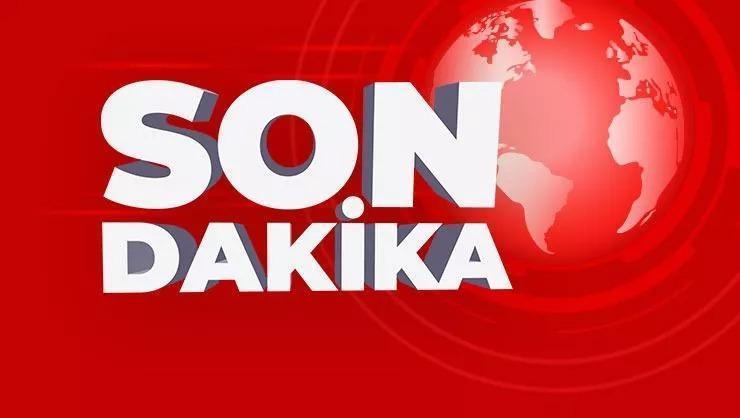Weekly Roundup: Top 5 News From the Week

Key Takeaways
- The Indonesian government rejects Apple’s $100 million investment proposal to lift the ban on iPhone 16.
- Elon Musk is trying to prevent OpenAI from turning for-profit once again.
- ChatGPT is still struggling to generate accurate news citations, a recent study shows.
- Meta is planning to build a $10 billion subsea cable network spanning over 40,000 km.
- Australia is considering a new law that might penalize industry leaders for squashing competition.
So much happened this week that you might not have been able to keep a tab on everything. So we have brought to you the top 5 most important news from the tech industry that you just can’t miss.
Apple’s $100 Million Investment Not Enough to Lift Ban from iPhone 16’s Sale: Indonesian Government Says
In October, Industry Minister Agus Gumiwang Kartasasmita imposed a ban on the sale of iPhone 16 in Indonesia, making it illegal to import, sell or use the device.
Note: People can still carry an iPhone 16 into the country if they have purchased it elsewhere and do not plan to use it for commercial purposes. 9,000 units have entered the country this way.

The ban was imposed because the company failed to meet the “40% local content” rule under which all smartphones need to have at least 40% of their content locally sourced. This is done to boost domestic industries and prevent them from being trampled by big international players.
If a company doesn’t want to use local content, it can compensate by investing in manufacturing and innovation projects. That’s what Apple promised to do.
However, at the time when the iPhone 16 was launched, the company was yet to keep its promise. It had only invested 1.5 trillion Indonesian rupiah while it had promised to invest at least 1.7 trillion Indonesian rupiah.
So now, to make up for this, Apple has offered to invest another $100 million. Unfortunately, this investment proposal was dismissed by the Indonesian government.
According to Kartasasmita, Apple needs to invest in a new production facility in the country to keep its promise. This way it will not have to file a new investment proposal every three years and it will also be more fair and at par with Apple’s investment in other countries.
Apple is yet to respond to this demand.
Elon Musk Attempts to Ban OpenAI from Turning For-Profit
In a brand new court filing, Elon Musk is once again trying to prevent OpenAI from turning for-profit.
Ever since OpenAI announced its plans to turn for-profit, Musk has opposed it. First, he filed a lawsuit against the company, accusing it of breaching its initial agreement with him (Elon Musk was one of the co-founders and investors of OpenAI).

However, OpenAI denied having any such agreement with Musk. And for some reason, without any explanation, Musk dropped the lawsuit a few weeks later.
But he hasn’t given up. Once again, he has approached a federal court to sabotage OpenAI’s plans. This time too, he repeated the same claims that OpenAI had made some promises to him which it’ll be breaching by turning for-profit.
Plus, the company set out to be a non-profit, dedicated to research but now it’s accepting investment in billions from Microsoft. This, according to Musk, goes against its founding principles.
He also added new concerns over OpenAI’s unchecked growth, which can possibly kill all competition including his own company xAI.
One of the points he raised is that OpenAI requires its investors not to invest in any other rival AI startup which is clearly against antitrust laws. Hence, it needs to be stopped before it’s too late.
OpenAI has addressed this filing and said that this is the fourth time that Musk has recycled the same baseless complaints which continue to be “utterly without merit”.
ChatGPT Continues to Make Fake New Citations
A recent study conducted by the Tow Center found that ChatGPT is still struggling with creating accurate citations for its news sources.
The study was conducted with 20 publishers which includes the ones that OpenAI has affiliations with as well as those which are unaffiliated. From each publisher, they took 10 quotes to see whether the tool could accurately pinpoint their source.

However, in many instances, the tool failed. The responses were mixed. Sometimes it got the source completely wrong, sometimes it got it partially correct, and only a handful of times, it got the citation completely correct.
Whether the publisher was affiliated with the company or not did not make a difference. Each of the 20 publishers was equally subjected to the mistakes.
In the end, it was found that out of the 200 queries, 153 were incorrect. The worst part is, in only 7 cases the tool acknowledged its inability to furnish accurate responses. So a regular user under normal circumstances wouldn’t even know that they were getting the wrong citations.
This is also highly disadvantageous for the publishers who might miss out on a bulk of traffic because those faulty links couldn’t point the user to their site.
OpenAI has responded to these findings and said that the Tow Centre conducts an “atypical test of our product.”
It then went on to explain how it’s already helping more than 250 million users every week with summaries, quotes, and citations. The company has already partnered up with experts to improve in-line citation accuracy and will continue to enhance its results.
Meta Wants to Build a $10 Billion Subsea Cable That’ll Run Across the Globe
Meta is planning to build a network of subsea cables that’ll run across more than 40,000 km and will cost the company about $10 billion.
As per reports, the company will initially start by investing $2 billion and as the project later progresses, the total investment might add up to $10 billion.

Most of the other details are still under wraps. Sometime in early 2025, it is expected to reveal its entire plan such as the cable route, capacity of the network, and reason for this project.
Note: The route might start from the east coast of the USA to India via South Africa and then back to the west coast of the USA through Australia.
However, it will be a few years before this project comes to fruition. According to Ranulf Scarborough, a submarine cable industry analyst, the cable ships that carry out such types of construction are quite expensive and booked out years in advance. Meta’s number might not come anytime soon unless it manages to find another way.
This also isn’t the first time that the company has ventured into underwater cable networks. It’s already a co-owner in 16 such networks, including the new 2Africa cable.
This New Competition Law Can Fine Big Tech Giants for Suppressing Competition
On Monday, Australia proposed a new law that could impose a fine of up to A$50 million ($33 million) on big tech companies if they try to suppress competition by preventing users from switching to other services.
Speaking about the same, Assistant Treasurer Stephen Jones said sometimes companies use certain tricks to lock in customers to their products. Doing so hampers innovation outside of the top players of the industry.

It’s also unfair to the users who cannot make a free choice and might end up paying more because they can’t switch to cheaper alternatives.
Hence, a regulation to maintain fairness in the industry is much needed.
The proposal is still under consultation which is expected to end on Feb 14. If everything goes well, the parliament will hold more sessions to discuss the drafting of the legislation.
If this law is finally imposed, Australian competition watchdogs will get the responsibility of investigating big tech companies to ensure their compliance with the competition laws.
The ad-tech industry and app marketplaces will be the first ones to come under their supervision. The law would prevent them from favoring one product/listing over another.
There’ll be no preferential ranking, even for the company’s own products or services.
Once the law is passed, the government will also consult with the Australian Competition and Consumer Commission to discuss which platforms pose the greatest risk and need to be investigated first.
The post Weekly Roundup: Top 5 News From the Week appeared first on Techreport.






